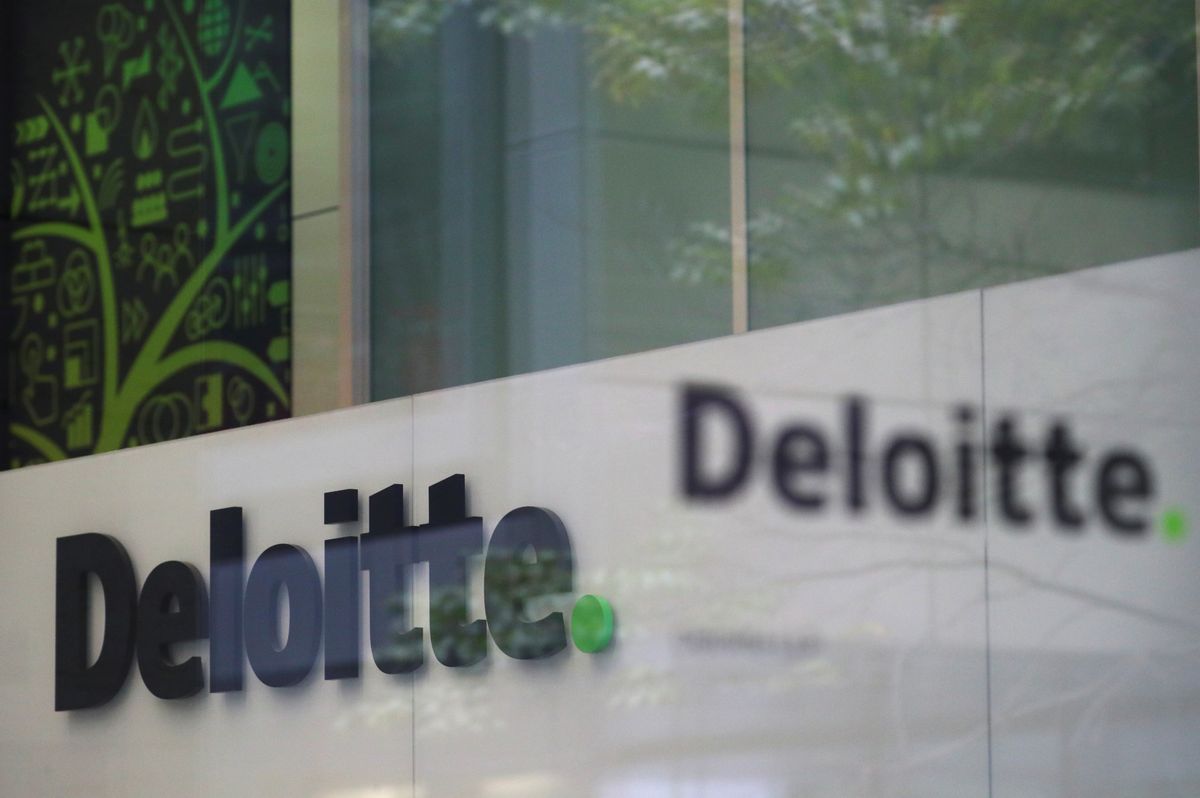Chinese authorities slam Deloitte with a massive fine and ban
Over the past few years, the "Big Four" accounting firms have been under the microscope in China and Hong Kong.

A few minutes every morning is all you need.
Stay up to date on the world's Headlines and Human Stories. It's fun, it's factual, it's fluff-free.
The backstory: Over the past few years, the "Big Four" accounting firms – Deloitte, PwC, KPMG and EY – have been under the microscope in China and Hong Kong. Why? Well, it all started after a wave of delayed financial results and clients defaulting on loans, mostly in China's rocky property sector. The Chinese government takes financial risk very seriously, so it's been cracking down on different parts of the financial industry to keep things in check. China has also been worried about data security in relation to these firms and their Western ties, so it's reportedly urged companies to switch over to domestic auditors instead.
More recently: The US Securities and Exchange Commission (SEC) came down hard on Deloitte's China arm last year, accusing the firm of being lax in its audit practices. Deloitte agreed to pay a US$ 20 million fine and make internal changes to bring it up to the international standard.
The development: Now, Deloitte's Beijing branch is in hot water with the Chinese authorities. Apparently, its audit of bad debt manager Huarong Asset Management didn't quite hit the mark, and the finance ministry found some serious issues. The ministry said that Deloitte "failed to maintain professional skepticism" and didn't pay enough attention to Huarong's financial activities – even missing the company's distorted accounting.
So, Deloitte's operations in Beijing have been banned for three months, and the auditor was slapped with a fine of 212 million yuan (US$31 million). Deloitte also had to give up its "illegal income" to authorities.
Deloitte's Chinese arm, Deloitte Hua Yong, said in a statement that there was no accusation from the government that its staff had done anything unethical and that it respected and accepted the ministry's decision.
Key comments:
“The DMA may lead to increased fragmentation in the digital market, as tech giants restructure their businesses and alter their practices to comply with the law,” said Dmytro Kondratiev, International Lawyer & Legal Board Advisor at LLC.Services to TMS. “This fragmentation could affect the user experience by creating inconsistencies across platforms and services.”
“During the period when it offered auditing services [to Huarong], [Deloitte Hua Yong] did not maintain [a] professional skeptical attitude, did not effectively conduct essential auditing procedures, did not obtain sufficient and adequate auditing evidence and had severe auditing flaws,” said China’s ministry of finance in a statement.
“To be clear, there is no suggestion by the [ministry] that either Deloitte Hua Yong, its Beijing branch, or any of its people have done anything unethical,” said Deloitte.“We respect and accept the [ministry’s] penalty decision. We regret that, in this matter, the [ministry] considers certain aspects of our work fell below the required auditing standards.”
“This is a local Mainland China regulatory matter. The Deloitte Mainland China audit firm will comply with the administrative ruling and continue to meet all audit reporting obligations to both local and international clients,” said Deloitte in a statement.




Comments ()